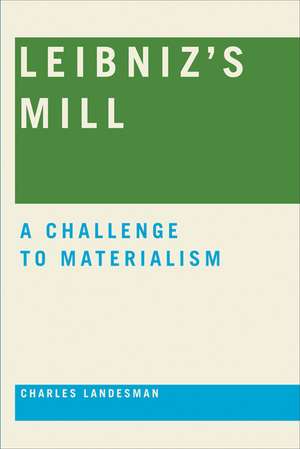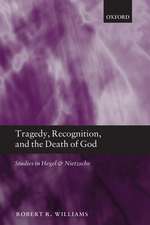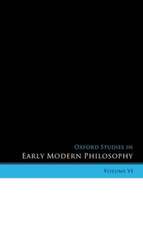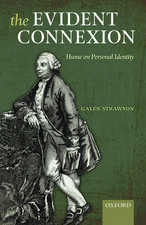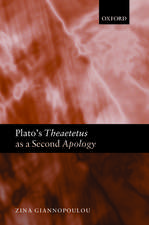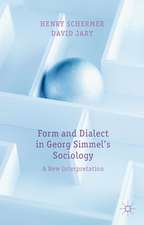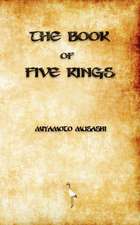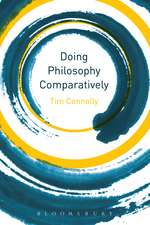Leibniz`s Mill – A Challenge to Materialism
Autor Charles Landesmanen Limba Engleză Paperback – 14 apr 2011
The title of this book, Leibniz's Mill, is taken from Leibniz's famous metaphor in support of a dualism between the mind, or self, and the body. Given that Descartes constructed the most famous defense of mind/body dualism, the first chapter is a basic exposition and defense of Descartes' arguments, as well as Leibniz's supporting argument. Charles Landesman's basic claim, argued with clarity and philosophical precision, is that dualism is to be preferred to materialism; namely, the self is not reducible to the body, mental processes are not reducible to brain processes, and the idea that the self is a mental substance constitutes the best understanding of all the facts of mental life.
Landesman takes up the central philosophical topics on the nature of the self and the mind in arguing that dualism is a defensible position, even if our mental life is dependent in some respects on the body. Dependency is not the same as identity. Nor should one deny that many bodily events are dependent upon states of mind. He examines our knowledge of other minds, the mind's knowledge of itself, and Descartes' famous argument "I think, therefore I am"; efforts by philosophers such as Hume, Nietzsche, William James, Whitehead, Wittgenstein, and Heidegger to deny the reality of a substantial ego; the mind's way of knowing of the physical world, with its "great deception of sense"; and finally, the teleological structure of human action and the problem of free will. Landesman argues that the dualism of mind and body is perfectly compatible with modern science and that, contrary to the claims of many philosophers, there is no reason to hold that science presupposes a naturalistic or materialistic framework.
"Charles Landesman shows that Cartesian mind-body dualism is alive and well and more plausible than its naturalistic and materialistic competitors. This is a first-rate piece of work that will be of real interest to philosophers and educated readers with interests in the philosophy of mind, history of philosophy, and epistemology. It should find a large readership among those who are looking for an alternative to the physicalist perspective that has long dominated the academy." --Stewart Goetz, Ursinus College
"Charles Landesman writes effortlessly, conveying to readers a rich alternative to today's mainline forms of materialism. This is a book that is comparable to Richard Rorty's Philosophy and the Mirror of Nature or Roderick M. Chisholm's Person and Object: A Metaphysical Study. Like the former, it is historical and substantial, like the latter it is unapologetic in advancing with clear arguments an under-represented position." --Charles Taliaferro, St. Olaf College
Landesman takes up the central philosophical topics on the nature of the self and the mind in arguing that dualism is a defensible position, even if our mental life is dependent in some respects on the body. Dependency is not the same as identity. Nor should one deny that many bodily events are dependent upon states of mind. He examines our knowledge of other minds, the mind's knowledge of itself, and Descartes' famous argument "I think, therefore I am"; efforts by philosophers such as Hume, Nietzsche, William James, Whitehead, Wittgenstein, and Heidegger to deny the reality of a substantial ego; the mind's way of knowing of the physical world, with its "great deception of sense"; and finally, the teleological structure of human action and the problem of free will. Landesman argues that the dualism of mind and body is perfectly compatible with modern science and that, contrary to the claims of many philosophers, there is no reason to hold that science presupposes a naturalistic or materialistic framework.
"Charles Landesman shows that Cartesian mind-body dualism is alive and well and more plausible than its naturalistic and materialistic competitors. This is a first-rate piece of work that will be of real interest to philosophers and educated readers with interests in the philosophy of mind, history of philosophy, and epistemology. It should find a large readership among those who are looking for an alternative to the physicalist perspective that has long dominated the academy." --Stewart Goetz, Ursinus College
"Charles Landesman writes effortlessly, conveying to readers a rich alternative to today's mainline forms of materialism. This is a book that is comparable to Richard Rorty's Philosophy and the Mirror of Nature or Roderick M. Chisholm's Person and Object: A Metaphysical Study. Like the former, it is historical and substantial, like the latter it is unapologetic in advancing with clear arguments an under-represented position." --Charles Taliaferro, St. Olaf College
Preț: 185.35 lei
Nou
Puncte Express: 278
Preț estimativ în valută:
35.47€ • 37.03$ • 29.29£
35.47€ • 37.03$ • 29.29£
Carte tipărită la comandă
Livrare economică 15-29 aprilie
Preluare comenzi: 021 569.72.76
Specificații
ISBN-13: 9780268034115
ISBN-10: 0268034117
Pagini: 192
Dimensiuni: 152 x 229 x 10 mm
Greutate: 0.3 kg
Ediția:1st Edition
Editura: MR – University of Notre Dame Press
ISBN-10: 0268034117
Pagini: 192
Dimensiuni: 152 x 229 x 10 mm
Greutate: 0.3 kg
Ediția:1st Edition
Editura: MR – University of Notre Dame Press
Notă biografică
Charles Landesman is professor emeritus of philosophy at Hunter College and the philosophy program at the Graduate School of the City University of New York. He is the author and editor of eleven books.
